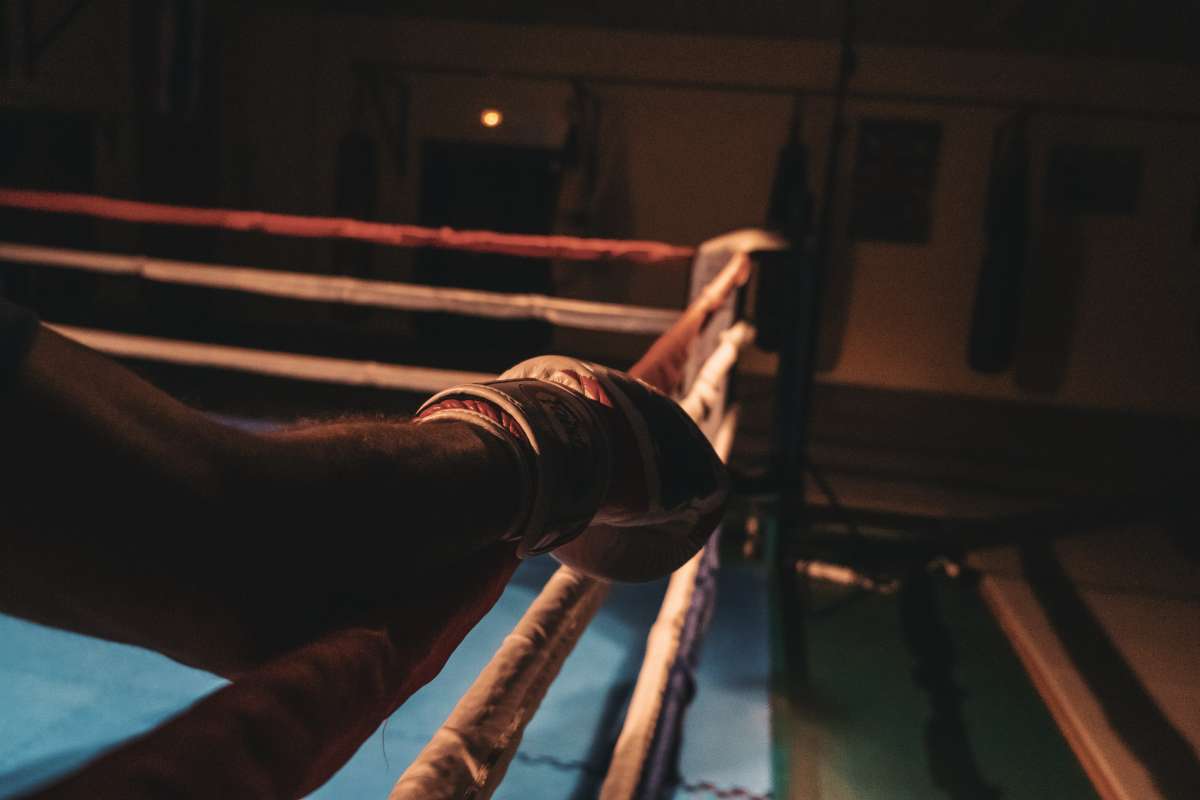Boxing is a physically demanding sport that requires a lot of training to be successful. However, there are some mistakes that people often make in their training that can lead to injuries and decreased performance. This blog post will highlight the four biggest mistakes to avoid in boxing training. Stay safe and achieve your best results by avoiding these errors!
Boxing training is great for anyone that’s just starting martial arts. It is the perfect gateway for various types of martial art in many ways. However, so much more goes into the art of pugilism than what it’s initially perceived. The truth is, boxing itself requires incredible discipline, thinking ahead, being aware, and being tactical. That’s why it’s referred to by many as ‘the sweet science.’
That being said, building a solid foundation for techniques is important when you’re starting. Beginners must learn the correct fundamentals of every technique to execute them perfectly. For beginners, it is strongly advised to execute right the first time so you don’t form bad habits as time passes. That being said, there are a few common beginner mistakes you need to be aware of. Keep these in mind the next time you’re training.
Boxing FAQs
Boxing was also enjoyed by the ancient gods. The patron god of the sport was Apollo, the son of Zeus and Leto. It was said that he defeated Ares, the god of War, in a boxing match during the first Olympics. Apollo had also beat Hermes in a footrace, so we know he had quick feet.
As a result, while it looks like a hug from the outside, it's actually a tactical maneuver in boxing. Clinching is typically used for three reasons, which can be to break up an opponent's rhythm, to take a bit of a break because you're hurting, or to rest when you're desperately waiting for the bell to ring.
Here's what he told us: “Because our mouths can become dry in the ring, and a lot of times you just want to get your mouth moist enough to be able to continue to the next round. We do swallow some water, though, and spit the rest.”
Weight training becomes bad for boxers when they are bodybuilding or Powerlifting focused. Bodybuilding routines are target purely hypertrophy which relies on volume for muscle growth. This volume of work will leave a boxer highly fatigued for boxing training.
It's against the rules to hold your opponent in boxing, so distinguishing clinching from holding is important. The goal is to close the distance by stepping inside the opponent's guard and pinning their arms under yours, seemingly hugging them around the body.
Beginner Mistakes To Avoid In Boxing Training
Neglecting The Fundamentals
The fundamentals in any discipline are crucial for long-term success, be it martial arts or anything. That is why your first few months of training and learning are extremely important. Laying down the foundation of technical skills will only help you learn and grow faster. It may be tempting to jump straight into the advanced technicalities of a new sport, especially since it’s all so incredibly exciting to start. Especially during the honeymoon phase with boxing, beginners want to dive right in, thinking they’re the next Manny Pacquiao or Floyd Mayweather. Unfortunately, this results in the tendency on missing out on important lessons and aspects of the game.
Strive to learn the fundamentals of executing basic moves like throwing basic punches, for instance — the jab, cross, hook, and uppercut, and knowing how to block and parry. These are all essential tools for the sport. Master each basic technique properly before moving on to more advanced variations like the shovel hook, the overhand, etc.
Lowering Your Guard
A prime example of fundamental teachings is keeping your guard up and protecting yourself. It’s a simple concept, but many fighters, including the advanced fighters, tend to lower their hands unintentionally, leaving them vulnerable because of the openings they have in their defence. Therefore, as early as possible in your boxing journey, practice constantly to ensure your hands are up, protecting the most crucial areas — the temple and the chin.
Beginners tend to bring their guard down, especially when they’re tired of throwing punches. This is one common mistake and is best to avoid. However, if you’re doing this already, try to correct it by making constant efforts and reminding yourself while practising. You can bake this good habit into your muscle memory by training your hands to stay on guard consistently. Protecting yourself at all times is the core ethos of pugilism.
Neglecting Footwork
Another mistake beginners make when you’re starting is neglecting the footwork. Admittedly, footwork isn’t the most exciting thing about boxing, but that doesn’t make it any less important. On the contrary, it is arguably even more important than punching itself. Unfortunately, most beginners focus solely on punching when they first start training. However, the best boxing gyms and instructors will have you focus on footwork before anything else. Because ultimately, this will undoubtedly set you up for success.
Footwork allows you to move smoothly in the ring, putting you in optimal positions and ranges to attack or defend. Better footwork than your opponents allows you to maneuver inside the ring easily and control them with ring generalship. In boxing, you must learn how to move both your arms and feet just as well.
Breathing
Many beginners don’t realise it, but breathing plays a very important role in boxing. Suppose you don’t know how to breathe properly while boxing; you’ll probably be gassed out within the first few rounds of a fight. The reason a lot of beginners lose stamina and gas out early in training is that they aren’t breathing properly. Muscles require oxygen to function, and the only way to feed oxygen into your body is by breathing.
Furthermore, breathing in boxing, especially in a fight, is different from breathing normally. It’s hard to get used to, especially when using a mouthguard at first, so we advise you to train with a mouthguard as early as possible. The gist of it is simple, breathe through the nose when moving and throwing punches. Generally, you want to inhale and exhale sharply in a controlled manner when moving and throwing punches. This will train both your aerobic and anaerobic endurance.
Be Patient
Boxing is an exciting sport to learn, and beginners often want to see progress quickly. But another common mistake is rushing development. You must understand that even the most skilled and talented professionals are still striving to improve their techniques and sharpen every small detail in training. As a beginner, you’re not going to get excellent at boxing overnight. It will take weeks, months, and years even of practice.
Don’t rush yourself. Give yourself time to focus on the tiniest details of every technique. By taking things slow and learning the trade properly, you’ll develop more like a boxer than your ‘rush’ training. As martial artists, we must strive to improve ourselves at least one per cent each day, so be patient with yourself; everyone has a different pace.
Avoid Making These Mistakes
Mistakes are a part of life, and everyone makes them at some point in their life. But it is important to take action and learn from your mistakes.
It is the same when you try some new exercise or sports. Whenever you try something new, it is natural to make mistakes. However, if you want to gain maximum benefit from that particular form of exercise, then it is crucial to correct your form. For example, correcting your form is extra important when the sport is boxing.
Boxing is an excellent form of art to burn fat, build muscles and gain flexibility. It also helps to tone your muscles and lose weight.
Don’t Throw Arm Punches.
Your first lesson in boxing is how to throw punches. Most beginners only use their hands and keep the rest of their bodies static. It is important to note that boxing is not only about your hands, but your entire body should be involved in the process. The power to punch with great force comes from your waist, hips, and legs. You have to slightly bend your knees, twist your torso towards the target, transfer the energy from the waist to the shoulder, and then to the fist to punch with great impact.
Keep An Eye On Your Stance
Breaking your stance while boxing can make you clumsy, and you won't be able to throw punches properly. Your feet should always be shoulder-width apart, knees slightly bent and left foot and torso slightly turned towards the opponent. Your right hand should be by your chin and your left hand in front of your face.
Always Keep Your Hands Up
Do not drop your hands down after throwing a punch. This will slow your speed and give a chance to the opponent to attack you. Instead, after every punch, your hands should return to their normal position in front of your face.
Footwork Matter
Apart from your hands, you must also be careful about your footwork. Your legs should be shoulder-width apart and keep moving them continuously to generate power. Also, try to stay on your toes.
The Physical Benefits Of Boxing Training
Let’s start with the big things, the physical benefits of boxing training. Of course, Boxing regularly will have a positive effect on your body, but do you know exactly just how much impact boxing training can have on your body?
Improved Cardiovascular Health
We’re constantly being told by doctors, fitness experts and pretty much every authority on health that taking care of our hearts is essential to protect ourselves from heart diseases and common illnesses and overall stay healthy.
To keep our hearts healthy, we need to be doing cardiovascular (or cardio) exercise regularly. The NHS recommends that adults do a minimum of 150 minutes of moderate aerobic exercise a week.
Boxing is a great source of cardio exercise, it gets your heart pumping and your lungs working harder so you burn more calories and reach a fat-burning threshold. In addition, cardio exercise places additional stress on your body in a safe and managed way, which results in beneficial changes to the systems in your body to support this increased level of exercise.
So, whatever exercises you do when you’re training, as long as they keep your heart rate up, you’ll be working to improve your cardiovascular health and ultimately will benefit from an overall healthier heart.
Better Overall Body Strength
Of course, it’s pretty clear that the top-of-their-game, pro boxers are super strong; you’d have to be to land a KO. But, have you thought about how much strength you use when you’re training?
Whether it’s sparring, using a punching bag, running circuits or practising your footwork, you’re pulling on your body’s reserves of strength to execute the activity.
If you consider that the average training punching bag weighs around 25kgs, and you could be hitting it hundreds of times in a training session, you can quickly see how much strength is needed for boxing training.
And the great thing about boxing training is that as you’re exerting strength to complete each exercise, you’re also getting stronger at the same time. So almost every boxing training exercise will build up your strength throughout your entire body, from your arms and core to your glutes and legs.
Increased Hand-Eye Coordination
When you’re throwing punches at an opponent in the ring, you need to know that your fists and eyes are working together in perfect harmony. One wrong move or misdirected punch could be hit with a right hook that sends you spinning towards the floor.
So, it’s lucky then that one of the benefits of boxing training is that it works to improve your hand-eye coordination. In addition, drilling your punch combinations can help you to train your arms to hit at the right angle, and position will build muscle memory that is vital in the ring.
Whether you’re shadowboxing, working with a punching bag or sparring with a partner, ensure you don’t just strike out blindly. You want to set clear targets for where you land your punches; training in this way will build up your hand-eye coordination.
This hand-eye coordination isn’t just useful when you’re boxing; it builds fine motor skills, which are valuable for a range of day to day activities such as buttoning clothes, holding a pen and many other actions.
That might not sound like a problem now; you’ve been getting yourself dressed since you were a child, but these actions become harder as we age, so training your coordination now will pay off later in life.
Increased Muscle Mass
Just as boxing builds up your overall body strength, it also works to increase your body’s muscle mass.
Increased cardiovascular activity and strength training work to burn fat and build muscle. With prolonged boxing training, you’ll begin to see an increase in muscle mass and definition.
Boxing is a fantastic sport for working almost every muscle in your body, so when you regularly train and eat a healthy balanced diet, you’ll work to reduce the fat and increase the muscle you carry.
Better Stamina And Endurance
Regularly working out, especially cardio exercises like boxing training, helps build up your stamina. Getting your heart pumping with a high-intensity cardio workout doesn’t just strengthen your muscles; it increases your stamina and endurance.
When you first enter a gym, you’ll likely find it hard to work out continuously for very long if you've never really exercised before. But, the more you go back and train again and again, the more stamina you’ll build up.
No one starts at the top of their game, so don’t be put off if other people can last longer than you when you begin boxing training. With practice and commitment to your boxing training, you’ll find yourself able to work out harder and for longer.
And the great thing about increased stamina and endurance is that it doesn’t just pay off in your boxing training; if you walk to work or find yourself running for the train in the morning, you’ll see the benefits as you can do more without feeling worn out.
The Mental Benefits Of Boxing Training
The effects of boxing training go much further than just the physical. Regularly exercising and improving your overall fitness can also have huge benefits for your mental wellbeing. We’ve already published an in-depth guide to the mental benefits of boxing, but we’ve included a few of the highlights below too.
Decreased Stress
Whether it’s at home, at work or just in general day to day life, all of us experience stress in one way or another; it’s a natural part of life. But, with regular exercise, research has found that stress can be reduced.
Exercise increases the levels of endorphins in the body; they’re the happy hormones that help to boost our moods. Regular moderate to intense exercises, such as boxing, can help to release these endorphins and reduce feelings of stress.
And while any exercise is good for releasing endorphins, boxing is particularly good for stress-busting. If you’re feeling frustrated or pent up, an hour in the gym letting it all out through your fists into a punching bag can be great to help you release your feelings and cut back any tension you’re feeling.
These repeated exercises, where you focus your attention on the movement of your body and the coordination of your hands and feet, allow you to stop concentrating on anything outside of the gym.
Boxing can be a very meditative exercise. When you clear your mind and focus on hammering away in the ring, all of the external stresses in your life fade away; it’s just you and your fists.
Better Sleep Quality
Alongside less stress, regular boxing training can also help you to improve your sleep quality. Research has discovered that high-intensity cardiovascular exercise, such as boxing, has a beneficial effect on sleep quality and how fast people can fall asleep.
After a heavy session in the ring, your body will be physically worn out and in need of more hours of sleep than usual to recover from the work you’ve put in at the gym that day.
And, because the repetitive actions of hitting a punching bag or sparring with a partner can help to clear your mind, you could drift off to sleep easier without any stress or having thoughts popping into your head about work or any other issues.
The Additional Benefits Of Boxing Training
Improved Confidence
One of the greatest benefits of boxing training is that you can feel more confident in yourself. As you progress through your training and commit to regularly working out, you’ll see your body adapt, and your mindset shift.
Getting stronger, seeing more definition in your muscles, lifting heavier weights and punching harder and generally benign healthier can all positively affect your self-confidence.
But it’s not just about looking good; boxing can also help you experience confidence in yourself in other ways. Boxing can help you to experience pride in your commitment when you show up for yourself and head to the gym week after week, even when you’d rather sit at home with a takeaway.
Or you might feel a sense of achievement when you reach a certain goal, whether that’s your first competitive fight or KO.
Joining A Community
Perhaps one of the biggest benefits of boxing away from the physical is the community that you join when you begin boxing training. From the lads down at the local gym that you spar with to international boxing fans that you communicate with online and global organisations, thousands of people out there share the same interests and passions as you.
Conclusion
Boxing training can be an incredibly rewarding experience, but only if you avoid making the common mistakes that beginners often make. By following the tips we’ve outlined in this post, you can make sure your time in the boxing gym is well spent and help to improve your physical, mental and even emotional health. So, are you ready to get started on your boxing journey?



